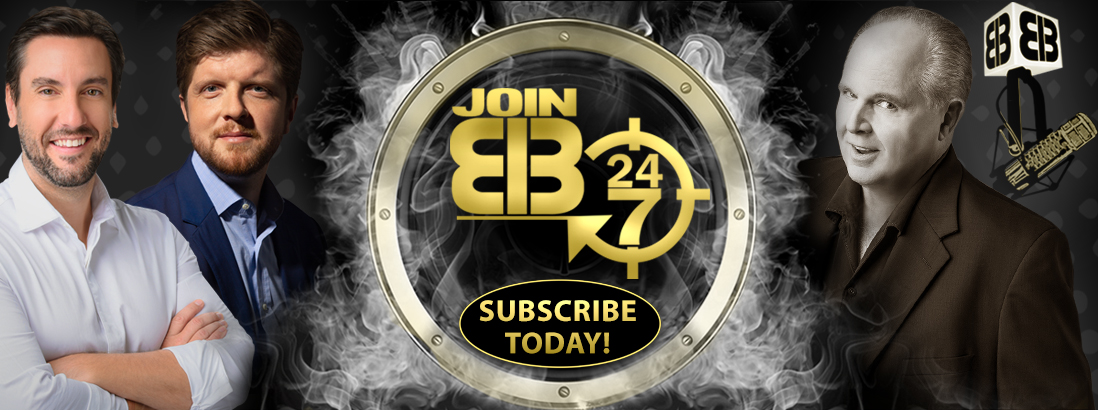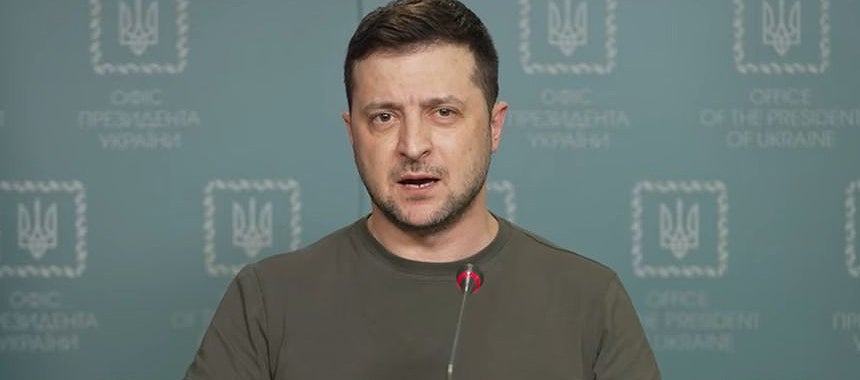Bob Barr
13 Dec 2021
Archive [March 1999]

As I have said many times, I believe history will vindicate the 13 brave House managers who presented the impeachment case to the Senate. I was privileged to speak to one of them, Rep. Barr (R, GA), just before the Senate voted to acquit President Clinton.
Rush: In your closing arguments today, you said that the President’s “perjury and obstruction of justice must not be allowed to stand.” But what if it is? If the President is acquitted, has he officially been declared above the law in your mind?
Barr: No doubt about it. That’s the argument defendants in any criminal case always make if they’re acquitted. And that’s precisely the argument that he will make here: that he has been acquitted, that he did not do anything wrong — and it has been so held by the Senate of the United States.
Rush: There’s been a lot made about the President gloating. I myself don’t quite understand why the Republicans would be so concerned if he gloats. I know the Democrats are terribly concerned, because once they’ve gotten him off, then they are him. They are linked to him. Whatever he does in the future, he does because they have in effect allowed him to do it. Are you concerned that he might throw a big party over this, after it’s all over?
Barr: No — frankly, I think he will do that. And I think it will hurt him. So it doesn’t bother me at all.
Rush: How will that hurt him? How can he be hurt politically himself during the balance of his term?
Barr: I think it will be an additional albatross around the neck of the Democrats, as we saw when he had his little victory celebration on the White House lawn right after his impeachment. That made a lot of Democrats — obviously not those who were there with him, but others — very uncomfortable. They started squirming. It’s still something that they don’t like to talk about. They say, “Oh, he shouldn’t have done that.” It won’t hurt him so much, because he’s terribly damaged anyway. But it will hurt other Democrats, and indirectly help us. Some people may be willing to let him off, but I don’t think they like to see him rub their noses in it.

Rush: Here’s one of the many theories I have to explain this Democrat unity, not just in the Senate, but in the House as well. They certainly don’t mind if, in the immediate term, their party is recognized as the party of perjury, the party of lying in general, the party of adultery, perhaps the party of pornography. They think they’ll be able to straighten that out in due course. But I think one of the reasons they’ve been so unified is because they just can’t stand the possibility that a guy like Bob Barr might end up being victorious. Has that been factored in by you in any of your proceedings?
Barr: The basic reason the Democrats have rallied around him all this time is because of their hatred for what happened in 1994. I don’t know that it’s so much me as it is they deeply, deeply resent and hate the Republicans for beating them and taking away control of the House and the Senate in 1994. And I think anything they can do, we see this particularly on the Judiciary Committee, to hurt Republicans, even if it’s voting against legislation that they would otherwise like, for example, certain civil liberties legislation, they will do simply to deny votes to us or to give us a victory.
Rush: Bob, you have been a personal target of the Democrats, starting with Dershowitz and then Schumer. But you knew — all of you managers knew — with the Senate’s initial bipartisan 100 to 0 vote, that the deck was stacked against you, and you really weren’t going to be allowed to put on a case. You knew this really wasn’t going to be a trial. And yet you persevered. You’ve done your best. You haven’t whined, and you haven’t complained. But how tough has it been, Bob -— both spiritually and in terms of just work — to get up and do this every day, knowing how stacked the deck against you was by your own colleagues in the Senate?

Barr: The thing that really hurt, Rush, and that really has left me with a very, very bad taste in my mouth was being called a racist. That’s something I didn’t expect, because it is absolutely, unequivocally untrue. I’ve put my very life on the line when I was a U.S. Attorney prosecuting white supremacists, for example. When I went into this, I knew they would bring up charges that I’d been divorced before, and whatever else they brought up from a personal level, I was prepared for, from the standpoint that I knew they would do it. Bur it wasn’t going to deter me. My wife knew that it was coming. We talked with our teenage boys about it. We knew that was coming. But what really put it beyond the pale and has caused me deep, as you say, spiritual anguish, to be honest with you, is being called a racist, over and over and over again. That’s what makes it tough, because that is something that attacks not only me personally, but my professional integrity, something that was at the core of what I did as a sworn United States Attorney.
Rush: It’s been frustrating for a lot of us, Bob, who have, for the longest time, appreciated what you’re doing. I mean you got started on this. You’ve been pursuing impeachment long before Lewinsky. You pursued or wanted to pursue the impeachment inquiry on a number of other episodes, primarily the Chinese funny money scandal. But you really can be said to be the spark that got all this going. Yet here you are, you finally get to the moment where you’re going to have a chance to put on your case, and you don’t get really a thorough chance to do that. But you’ve gotten up every day and done your best. What was your mood and the mood of your colleagues on the management team, when this all began, knowing full well what you were up against?
Barr: I think it probably can be summed up by a line from one of my favorite movies, “Patton,” which I watched again the other night. At the very end, you may remember, after the war in Europe is over, he’s on the horse going around the dirt auditorium, being interviewed by some stateside reporters who are talking to him about the future of warfare, when you supposedly just push buttons. And he points out that that way, nothing is reaffirmed, nothing is glorified.
Our view is there’s something here that’s much more important than this particular case that demands reaffirmation. And it’s the rule of law. It’s not only the substance of these proceedings, but the process as well. The process is just as important as the substance. So that when people look back on this episode years and years from now, they will know that at least the House, not the Senate, but at least the House really, truly, deep down believed in the Constitution in substance and in process. A reaffirmation of the process is very important. All of us feel that way, including Henry.

Rush: So you did the best job you think you could, despite the obstacles placed in your path.
Barr: Absolutely.
Rush: Anything you’d have done differently?
Barr: Not personally, no. Obviously I’m just one member of 13 and not in the position of the chairman. If I’d been the chairman, sure, I would have done things differently, just in terms of the assignments and so forth. But in terms of my personal work, and in terms of the work of each of the managers, I think every one of us can legitimately say we did the best we could, given the very, very unfortunate, and I think very damaging, limitations that our colleagues in the Senate placed on us.
Rush: By the time this issue comes out, the vote will have been taken, and we’ll know the outcome. But I’d still like to know your thinking at the moment. How’s it really going to go?
Barr: I think it would be almost impossible, certainly not impossible, but virtually impossible to gain a conviction on either article. That’s been apparent to me for the last couple of weeks or ten days. Up to that point, I really held out some hope that there would be some opportunity to really present evidence and sway some votes. But when Senator Byrd proposed his motion to dismiss, and it gained as many votes as it did, to me that said hey, there is pretty much no way this is going to win.
Rush: Senator Byrd, after making that motion to dismiss, is now running around saying that these are impeachable offenses: they are high crimes and misdemeanors. Yet he doesn’t know how he’s going to vote. He cites the polls indirectly by saying that it might upset the country to remove the President. The economy is good. You said in your close to the Senate that their duty is to do “impartial justice under the law, a duty untainted by polls.” Polling is now the driving force in both parties; in the media as well. Is reliance on polls one of the Republican Party’s root problems in your view?
Barr: Absolutely, Rush. I can’t tell you the number of times that we have been in meetings, talking about substance, and we hear polls, polls, polls, polls. It’s part of our problem, the same as it is part of the Democrats’ problem.
Rush: What do you make of Byrd, by the way?
Barr: He personifies the ultimate frustration here. Here you have somebody who truly loves this institution, loves and understands the Constitution like few people do. And says, “I believe that this man committed high crimes and misdemeanors, but I’m not going to vote to remove him from office.” That’s the ultimate frustration. You want to just say, “How in heaven’s name can you reach that conclusion after concluding that the man committed high crimes and misdemeanors?” It’s just an unanswerable question, if in fact you operate from the presumption that there is substance behind this, and not partisan policies.
Rush: Well, but partisan politics has to be the sole explanation for the Democrats’ unity here.
Barr: I think it is.
Rush: It’s certainly not the facts of the case. Well, if they succeed in getting acquittals on both articles, the Democrats in the Senate are going to move for their precious censure resolution. And I think those deliberations ought to be public. I think the Democrats ought to be forced in public to define what it is they mean when they say what the President did is indefensible, reprehensible, unconscionable. Because now that they have aligned themselves with him by this acquittal, they are him and he is they. Anything he does in the remaining months of his term is tied explicitly to them, because they’ve enabled it to happen. What are your thoughts on the censure resolution?
Barr: Ever since the notion of censure first came up, I’ve maintained that it ought not to be among the options for us as a party, because it is meaningless. It is worse than doing nothing, because it gives the appearance of doing something, when you’re not really. I think that the Democrats, as you say, ought to be held to explain themselves publicly. The deliberations ought to be open. And let the public understand what a sham this really is.
Rush: You’ve been, as I said, pursuing impeachment longer than anybody. And you did it on matters that had nothing to do with Monica, or sex, or any of these matters. Now you expect an acquittal. If those acquittals occur, are you going to look at your work as an exercise in futility?
Barr: Never. I do not believe this has been futile. It’s been very frustrating. More frustrating than anything I have ever been associated with in my life, Rush, but it is not futile. I was never prouder of our Republican Party than on December 19th, when we voted two articles of impeachment in the House. I think we have, as a party in the House, stood for the Constitution, reaffirmed the principle of accountability and rule of law, and I don’t think that any of us ought to ever think that we have to belly up to the bar on that issue. Now what happened in the Senate is quite something different. But from my standpoint as a member of the House that first raised the issue of impeachment, no, I will never, to my dying day, look back on this as futile.
Rush: In the well of the Senate today, going back to your close, you cited the possibility that national security may have been put at risk with Clinton’s relationship with Lewinsky. Would you expand on that for my readers? And why hasn’t more been made of this by people like you who have been making the case against Clinton?
Barr: I raised that specifically since something caught my eye in the newspaper this morning. In the Marietta paper, my hometown paper, they reprinted a recent editorial by the Augusta, Georgia Chronicle. They discussed Senator Nunn, who had given an interview recently to CNN in which he raised the issue of national security because of the President’s reckless behavior. I thought that was particularly timely, since Senator Nunn is rightfully thought of by his colleagues in the Senate as a true statesman in a nonpartisan sense. And Senator Nunn said, here you have a President who was calling up somebody on the outside at all hours of the day and night, apparently, not on secure phones, because her phone obviously wasn’t secure, and discussing matters of a very personal nature. It would have been very easy — and, who knows, maybe this took place — for somebody else, perhaps a foreign power or somebody linked to a foreign power, or somebody seeking to blackmail the President, to have listened in on this. It could have led — perhaps did — to compromises in national security. As a former official with the CIA, I know that is precisely the information that foreign intelligence services try to accumulate on people in order to exert pressure on them.
Rush: Why wasn’t more made of this? The Nunn interview was back on January 21. He’s a Democrat, Senate Foreign Intelligence Committee. Why hasn’t more been made of this by our side?

Barr: It’s a good question, Rush. I don’t know. Perhaps it’s because it doesn’t fit within the precise four comers of the limited scope of the trial here in the Senate. The same as other very serious matters, because they may not fit within the precise four corners of these matters as defined by our leadership. Maybe that’s why. Maybe it’s that a lot of our people have just sort of given up on really raising any of these other issues.
Rush: See, that’s giving up. Frankly, I got frustrated today myself. The first two or three phone calls I had from people were our voters, who said they fully expect the Senate Republicans to cave on censure, on letting the Democrats have whatever they want. The people are just obsessed with that, they’re convinced that our side is going to do whatever it can to provoke as little confrontation with Clinton, so as not to fall even further in the polls. In the process, that kind of attitude allows lawbreaking at the highest levels of our government.
Barr: This is precisely the problem that faces us as a party. I was at a Republican retreat this past weekend, and there was some very, very good substance that came out of that. But there was also a great deal of discussion about polls. That is precisely what you’re talking about, and precisely what has gotten us in trouble in the past: putting polls ahead of principle in determining what we do, how we do it, and when we do it.
Rush: How do you explain — if you have an explanation for it — the public apathy and the President’s job approval numbers, which really have been his sole link to salvation here, Bob? If he hadn’t had those polls where they are, he wouldn’t have lasted half this time.
Barr: Rush, it’s probably from a lot of things, but two things keep coming back to my mind as I talk with people and read about these things. One is a fundamental ignorance on the part of a large segment of our population, young and old, about what our country is, what its institutions are, what they stand for, and why it’s necessary to protect them. Principles such as separation of powers, accountability, rule under the law. We’re not teaching those things to our children. We’re not discussing those things in our political parties, to be honest with you. And therefore, when those institutions are under attack from within, in this case, people don’t know enough about them to rally to their defense.
Secondly, because so many people in our country nowadays have bought into the erroneous notion that the job of the federal government is to run the economy, that supersedes anything else. As long as the economy is running well, people give credit to the government, say it is doing its job. Therefore, don’t bother us with these other things — they aren’t the government’s job. Historically, of course, it was exactly the opposite. Running the economy was not to be the job of the federal government. Ensuring accountability under rule of law was the job of the federal government.
Rush: Yes. And you know, this is unrelated to impeachment, but that’s something that really worries me. Because when this is over, we have to go back to putting together an agenda and telling the American people why it is that we’re fit to lead them in government. And you know that an economic downturn is coming. It’s going to happen. It may be not soon, but it’s going to happen. And because of this prosperity, Bob, because of this unparalleled prosperity, when the economy goes south the people are first going to turn to government and say, “Fix it.”
Barr: Yep.
Rush: And we don’t believe that’s where the fix ought to be. So we’ve got to act, I think, in a pretty intelligent way here. Because this impeachment stuff is going to be in the back page soon, and it’s going to be back to just standard old two-party politics, and those arguments over agenda items. Do you think that the Republican Party will be able to get back on secure footing vis-à-vis its agenda, once this is all over? Or has this taken too much out of the current leadership and we’re in trouble?
Barr: I’m optimistic, Rush. That may sound odd, after all of the frustrations that we’ve gone through and that we’ve been discussing here today. But I’m optimistic. I do think that we as a party recognize this. The only thing I hope is that we don’t take the position that all of this has been worthless, and that therefore we have to get back on track. I hope we don’t do that, because we have stood for principle, at least on the House side in all this. And we need the party to reaffirm that and support us in standing for that. But I do think — and this is something we hit over and over and over at the Williamsburg retreat — that our party and our leadership does understand that we need to come up with a strong agenda, unlike what we did last year, which was the worst of all possible worlds. I think that we will come up with an agenda.

Rush: I hope you’re right and I hope you have a role in that. You clearly have demonstrated that you’re fearless. You have demonstrated that you are not going to be daunted, swayed, or taken off path by whatever assaults they throw at you. And, man, you’ve been hit. They sent Larry Flynt after you. You’ve been audited.
Barr: They’ve done pretty much everything they can. As a matter of fact, in the mail the other day, I got a letter and a membership card — now I’m a member of “The Hell-Catcher’s Club.” I’d never heard of this group, but they sent a very nice letter saying that I’ve caught more hell than anybody should ever have to, and they’ve given me an honorary membership.
Rush: Well, you have. But it hasn’t taken you off-stride, much less off-course. And believe me, there are a lot of people who’ve noticed this, and not just about you but about the entire House managers’ team. A lot of people are very grateful for what you people have done, and I count myself as being at the top of the that list. And on behalf of those who feel the same way as I do, I want to say a heartfelt thanks for doing the best job you could: doing a thorough job. And believe me. Bob, everybody who understands what’s happened here knows that you made your case in spades, despite the obstacles against you. And they’re with you.
Barr: Well, that means a lot because you speak for an awful lot of people. Rush. It’s an honor to have you say that.
Rush: It’s all true. God bless you. And whatever you do, just don’t change. You’re providing, I think, a glowing example for people of how to behave when you’re under the microscope, how to behave when you’re assaulted. You fight back, and you don’t let them deter you; you don’t let them scare you. I’ve never seen you on the defensive. I’ve seen you respond and explain the truth, but I’ve never seen them put you on the defensive. And I hope that there are others who can learn from your behavior on this.
Barr: Thank you, Rush. I’ve learned from the master, serving as a U.S. Attorney under President Reagan.
________________________________
I want to quote from the statement Rep. Barr released after the vote of the Senate not to remove President Clinton from office for committing perjury and obstruction of justice:
“It has been an honor to be a part of this process as a House Member, and a special privilege to be a part of the team of House Managers. To paraphrase a letter written by the Apostle Paul nearly two thousand years ago, we have fought a good fight, finished our course, and kept the faith. While I wish the outcome of the trial were different. I believe our work was important, and I do not regret a moment of it. It is my sincere hope President Clinton will refrain from similar conduct in the future, and that he will disavow reports that he will deliberately seek retribution on those who opposed him in this impeachment process. Today’s verdict does not give the President a mandate to further abuse his office, nor should it signal the beginning of a campaign of revenge and vindictiveness. If the President really wants to move on to other issues, he should roll up his sleeves and work with Congress on securing America’s future by reducing the size of government, reforming our tax code, and providing a strong national defense.”
Recent Stories

De Blasio Imposes Vaccine Passport Mandate In NYC test
This is an excerpt that Jaime updated. ffffffffffff

Buck Draws Heat For Speaking Truth About Simone Biles
I just wanted to establish what the current president was saying back on ABC News in March to George Stephanopoulos about his feelings on Governor Cuomo.






